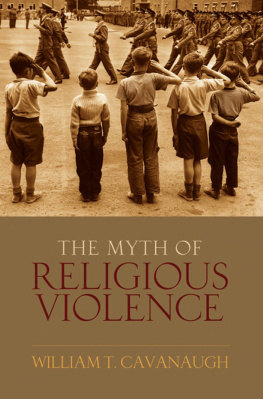Mitsutoshi Horii - Religion and Secular Categories in Sociology: Decolonizing the Modern Myth
Here you can read online Mitsutoshi Horii - Religion and Secular Categories in Sociology: Decolonizing the Modern Myth full text of the book (entire story) in english for free. Download pdf and epub, get meaning, cover and reviews about this ebook. year: 2021, publisher: Springer Nature, genre: Religion. Description of the work, (preface) as well as reviews are available. Best literature library LitArk.com created for fans of good reading and offers a wide selection of genres:
Romance novel
Science fiction
Adventure
Detective
Science
History
Home and family
Prose
Art
Politics
Computer
Non-fiction
Religion
Business
Children
Humor
Choose a favorite category and find really read worthwhile books. Enjoy immersion in the world of imagination, feel the emotions of the characters or learn something new for yourself, make an fascinating discovery.
- Book:Religion and Secular Categories in Sociology: Decolonizing the Modern Myth
- Author:
- Publisher:Springer Nature
- Genre:
- Year:2021
- Rating:3 / 5
- Favourites:Add to favourites
- Your mark:
- 60
- 1
- 2
- 3
- 4
- 5
Religion and Secular Categories in Sociology: Decolonizing the Modern Myth: summary, description and annotation
We offer to read an annotation, description, summary or preface (depends on what the author of the book "Religion and Secular Categories in Sociology: Decolonizing the Modern Myth" wrote himself). If you haven't found the necessary information about the book — write in the comments, we will try to find it.
Mitsutoshi Horii: author's other books
Who wrote Religion and Secular Categories in Sociology: Decolonizing the Modern Myth? Find out the surname, the name of the author of the book and a list of all author's works by series.
Religion and Secular Categories in Sociology: Decolonizing the Modern Myth — read online for free the complete book (whole text) full work
Below is the text of the book, divided by pages. System saving the place of the last page read, allows you to conveniently read the book "Religion and Secular Categories in Sociology: Decolonizing the Modern Myth" online for free, without having to search again every time where you left off. Put a bookmark, and you can go to the page where you finished reading at any time.
Font size:
Interval:
Bookmark:
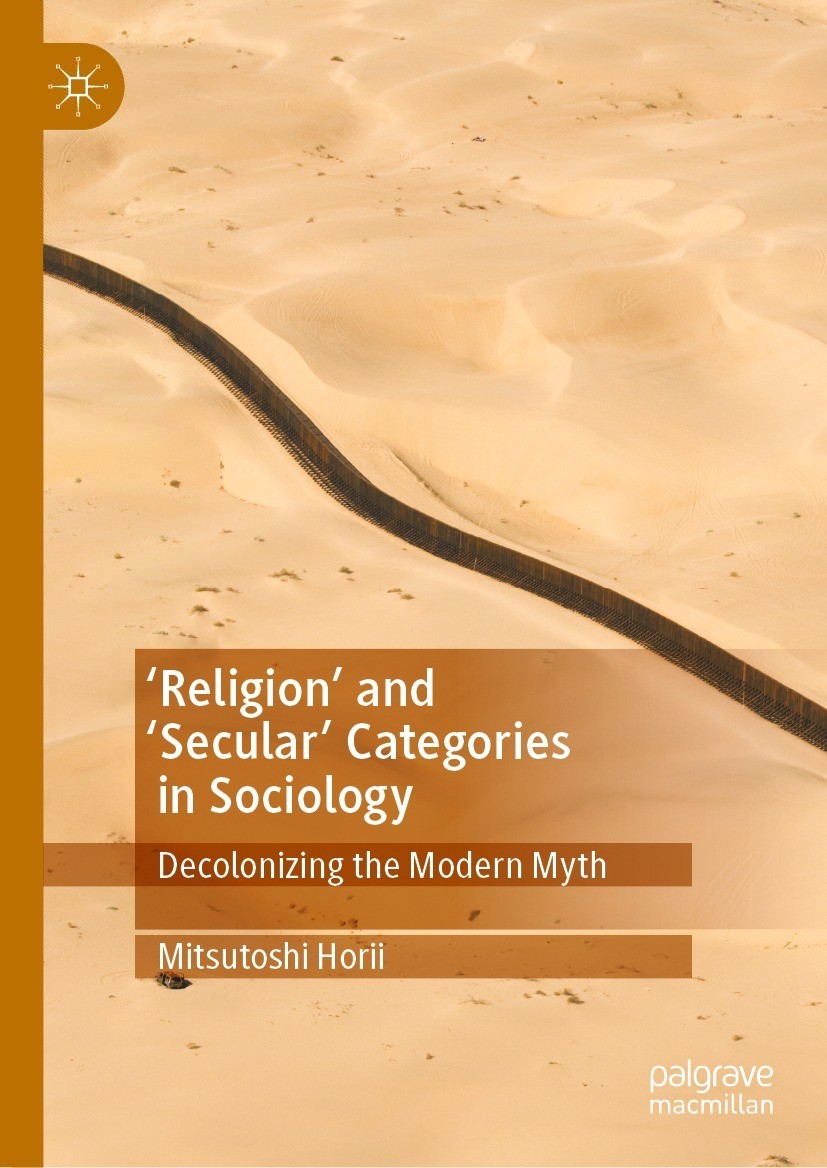

Cover illustration: Kevin Schafer
This Palgrave Macmillan imprint is published by the registered company Springer Nature Switzerland AG
The registered company address is: Gewerbestrasse 11, 6330 Cham, Switzerland
To my family in the UK and in Japan
Far from being able to say that men classify quite naturally, by a sort of necessity of their individual understandings, we must on the contrary ask ourselves what could have led them to arrange their ideas in this way, and where they could have found the plan of remarkable disposition. (Durkheim and Mauss 1963 [1903], p. 9)
Durkheim and Mauss tried to answer this question by studying the classification systems found amongst the indigenous communities in Australia. In contrast, in this book, I would like to ask the same question by studying the classification practices found in the community of sociologists. I am particularly interested in sociologists practice of classifying modes of being and knowing into religious and non-religious or secular kinds. The category of religion is subdivided into a number of world religions, indigenous religions, new religions, implicit religions, lived religions and the like, while the category the secular includes reified realms of politics, economy, science and the like. These are encompassed by the ideas of culture and society which are imagined to be separate from nature. This classification scheme seems to be generally shared by moderns.
Analysing all these categories and their interdependencies is beyond the scope of this modest book. I would like to focus on what I believe to be constituting the core of the classification system of modernity. That is the religious-secular distinction. This book denaturalizes the religious-secular distinction by highlighting the essential similarity between religious and secular modes of being and knowing, and interrogates the arbitrariness of such a distinction. In this process, other related secular categories such as politics, economy, science, culture, and society will be briefly but critically examined. However, when these categories appear in direct quotations while pursuing my argument, a significant proportion of these occurrences are left unexamined, especially, where these categories were used descriptively and their meanings were relatively clear. This is to avoid overcomplicating my narratives, so that the main focus of the book remains the religious-secular distinction. Nevertheless, I admit that this is a limitation of this book, which I would like to overcome in my future works. Thus, this book is a modest and preliminary attempt to study sociologists classification practice of religion and secularity, in similar ways in which anthropologists investigate classification systems of indigenous communities. In spite of its shortcomings, however, I still believe that it is still worth publishing a book which provincializes moderns classifications that are utilized by sociologists.
The critical deconstruction of the religious-secular distinction that this book endeavours aims to be constructive. The chapters in this book relentlessly demolish the walls built by moderns to demarcate two conceptual territories of religion and secularity. My hope is that knocking down these walls results in creating a new perspective, by enabling us to see what these walls prevent us from seeing.
One of the practical implications of this would be to facilitate a new way of learning by deconstructing the pre-existing hierarchy of knowledge. Durkheim and Mauss (1963 [1903], p. 8), for example, rightly point out: Every classification implies a hierarchical order. The classification scheme of modernity privileges the secular, treating it as if it represents factual reality and the universal order of things, while non-modern modes of being and knowing are classified as religious, which are regarded by moderns as irrational, illusional, fictional, unreal and the like.
Social sciences, including Sociology, are generally assumed to be a secular kind of knowledge, as opposed to religion. In contrast, non-modern forms of human lifeways are likely to be associated with the category religion. Social scientists and sociologists observe religion from their ostensibly secular positionality. They analyse religion utilizing apparently secular social theories. When non-modern ways of life are likely to be regarded as religious, these non-modern modes of being and knowing are treated as the object, rather than the tool, of analysis. The classification scheme of modernity therefore normalizes and authorizes a hierarchical order of being and knowing, in which non-modern modes of being and knowing are subordinated to modern modes of being and knowing. In contrast, I am proposing that social scientists and sociologists should seriously consider the possibility of utilizing non-modern value orientations and worldviews as tools of analysis, rather than treating them as objects of analysis. The deconstruction of the religious-secular distinction would facilitate this kind of thinking as a constructive way forward for social sciences and Sociology.
When modernity is regarded as secular and the category religion signifies non-modern lifeways, deconstructing the religious-secular distinction is to demolish the hierarchical relationship between social sciences and Sociology, on the one hand, and other modes of being and knowing which are formally regarded as religious, on the other. This challenges the secular self-identity of social scientists and sociologists, which tacitly claims superiority over ostensibly religious modes of being and knowing. This is also to recognize that ostensibly secular social theories and Sociology are not universal, but they were originally an
Font size:
Interval:
Bookmark:
Similar books «Religion and Secular Categories in Sociology: Decolonizing the Modern Myth»
Look at similar books to Religion and Secular Categories in Sociology: Decolonizing the Modern Myth. We have selected literature similar in name and meaning in the hope of providing readers with more options to find new, interesting, not yet read works.
Discussion, reviews of the book Religion and Secular Categories in Sociology: Decolonizing the Modern Myth and just readers' own opinions. Leave your comments, write what you think about the work, its meaning or the main characters. Specify what exactly you liked and what you didn't like, and why you think so.

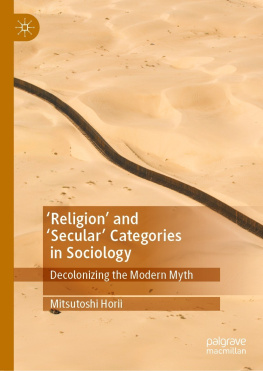

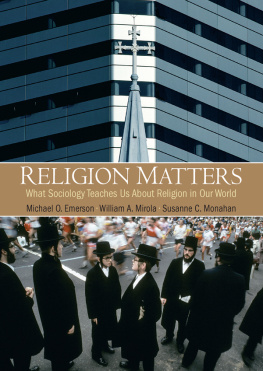
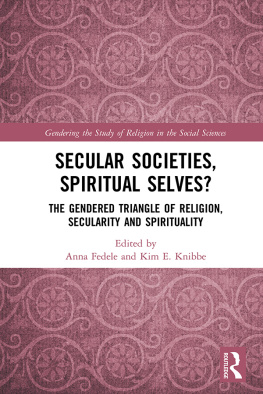
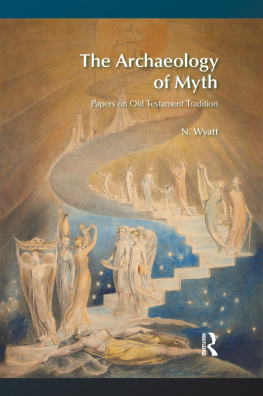
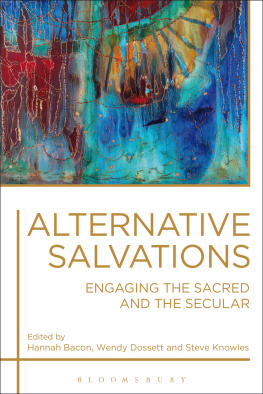
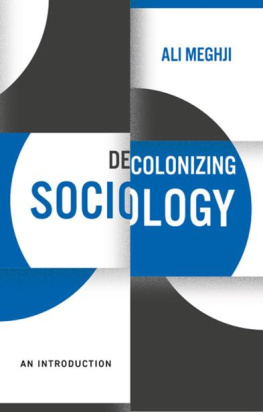
![Blackford - Freedom of religion [and] the secular state](/uploads/posts/book/167779/thumbs/blackford-freedom-of-religion-and-the-secular.jpg)
